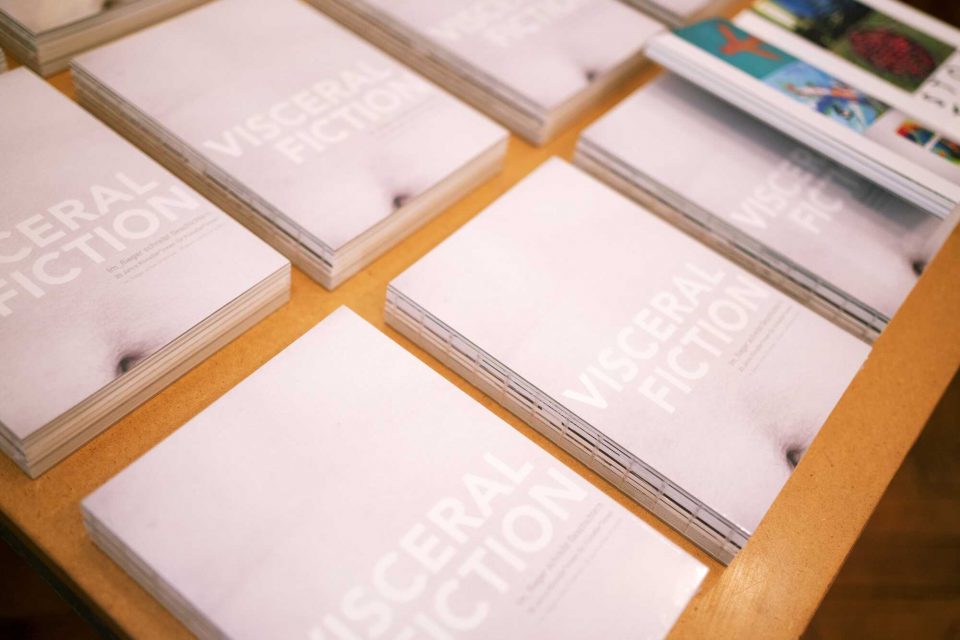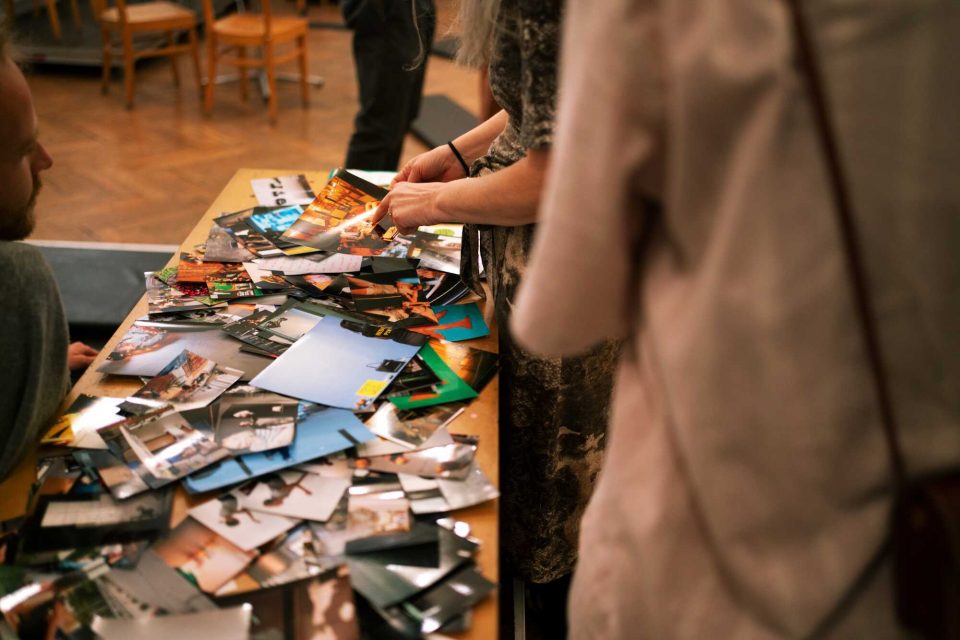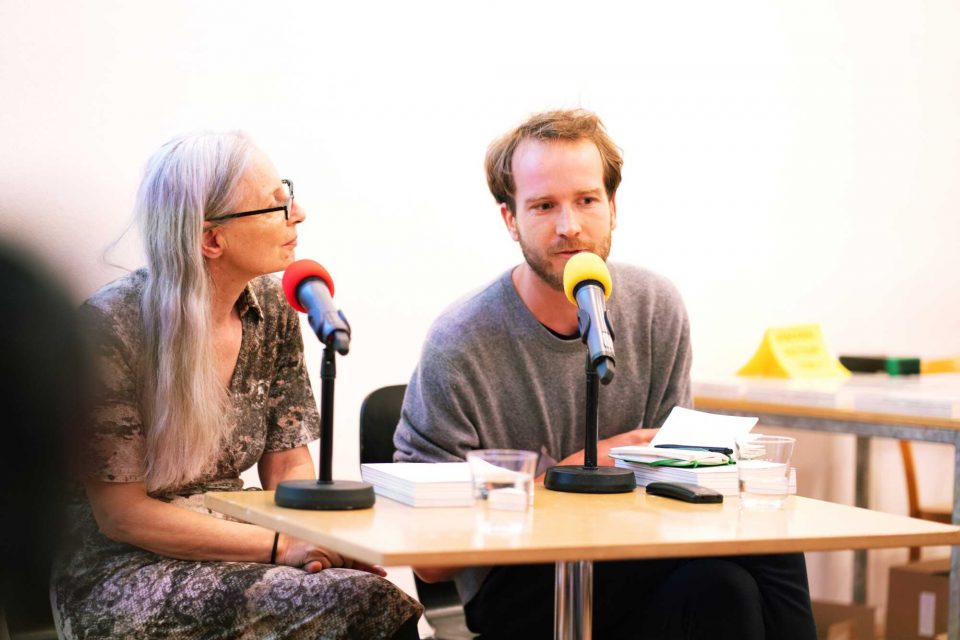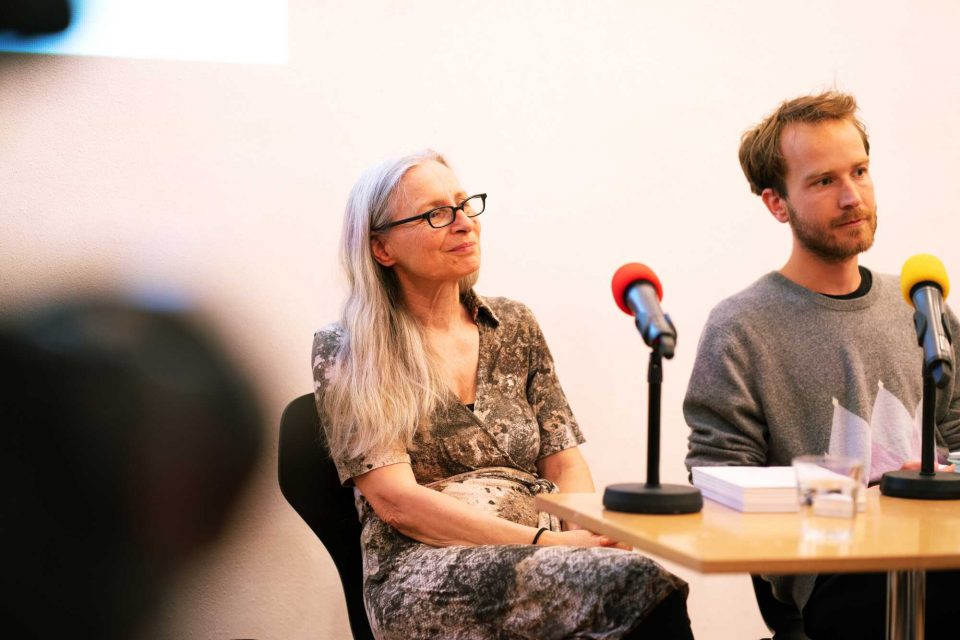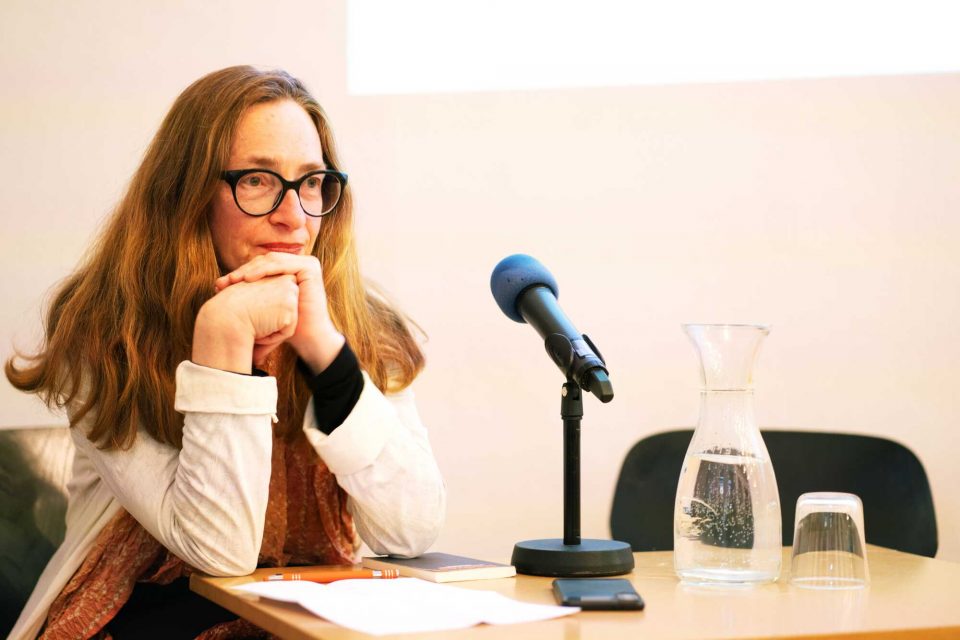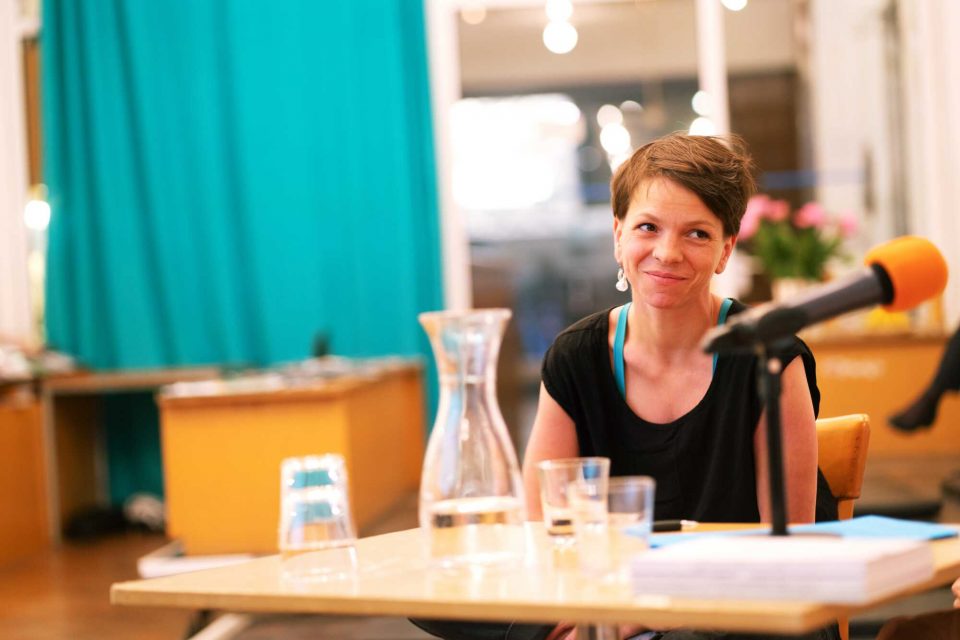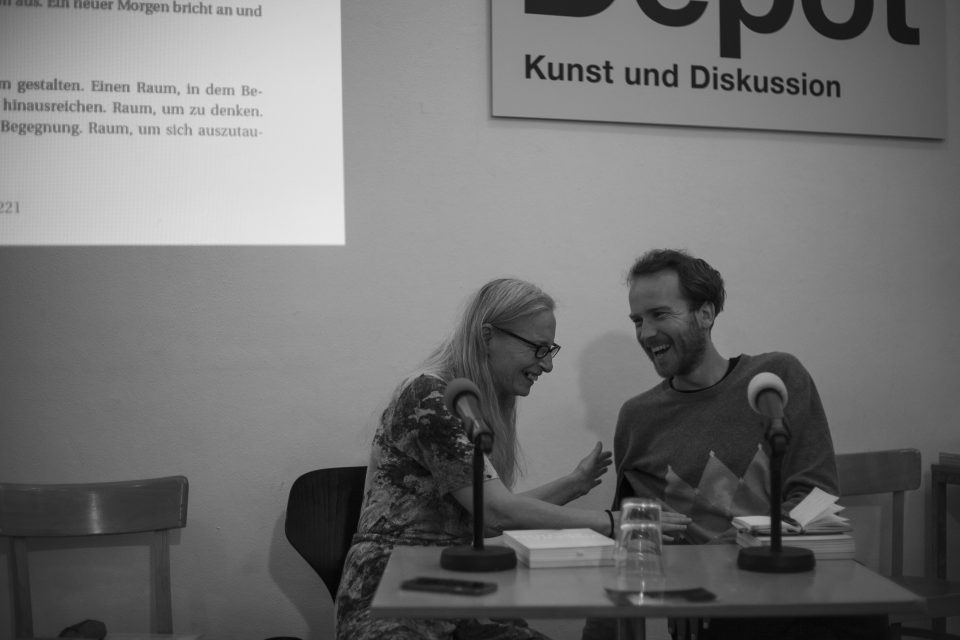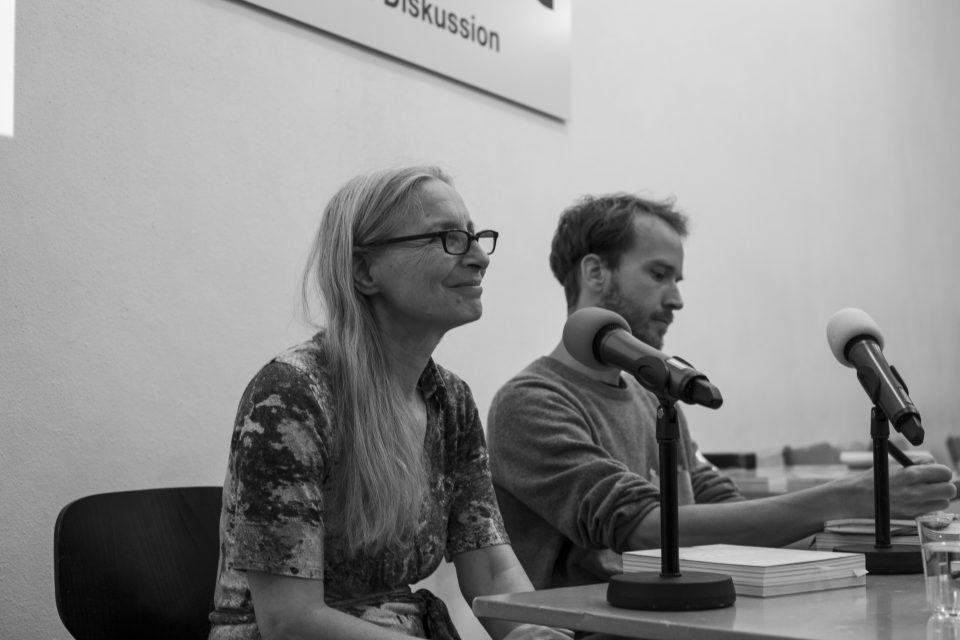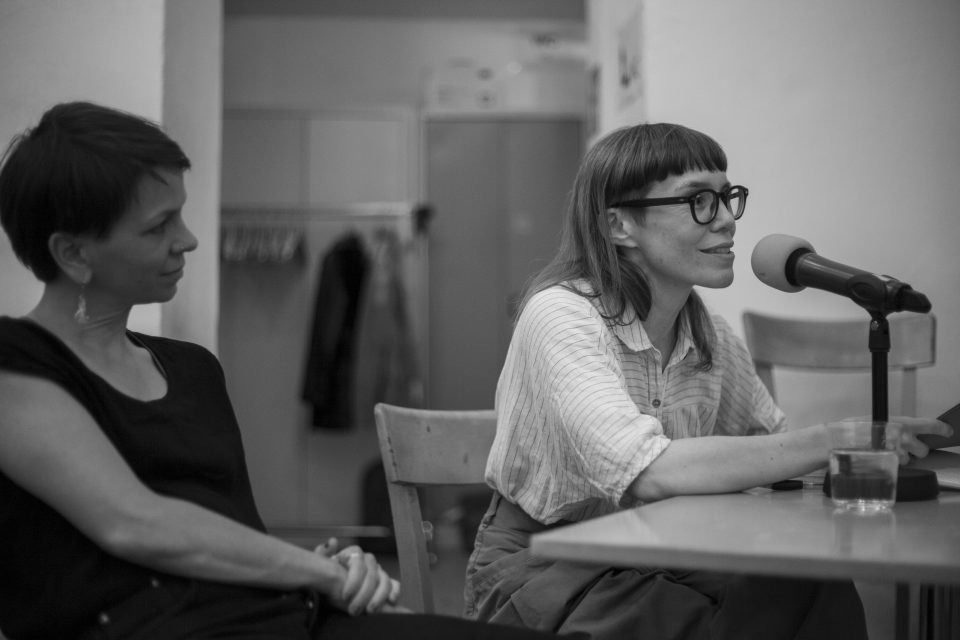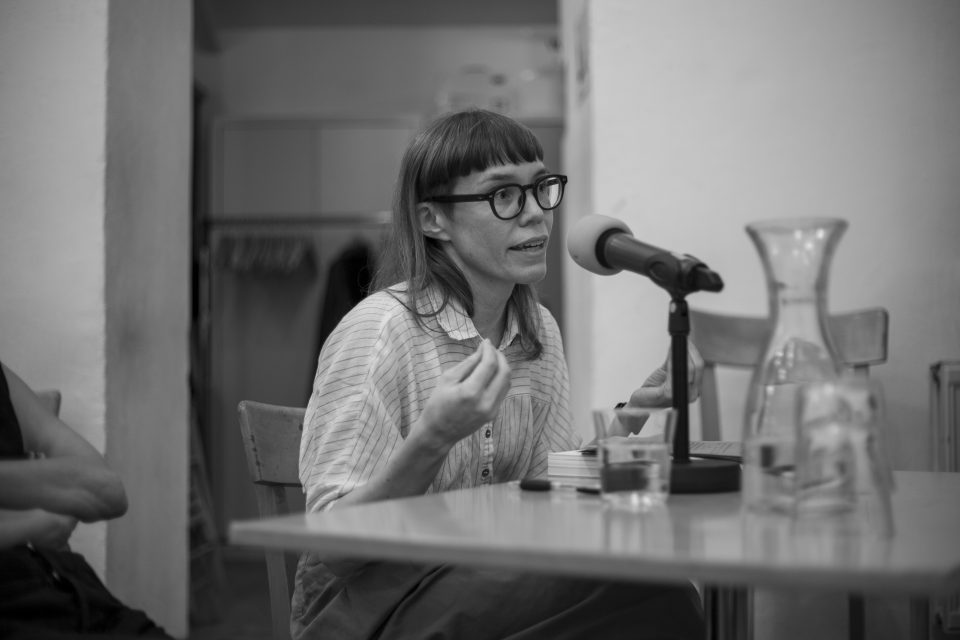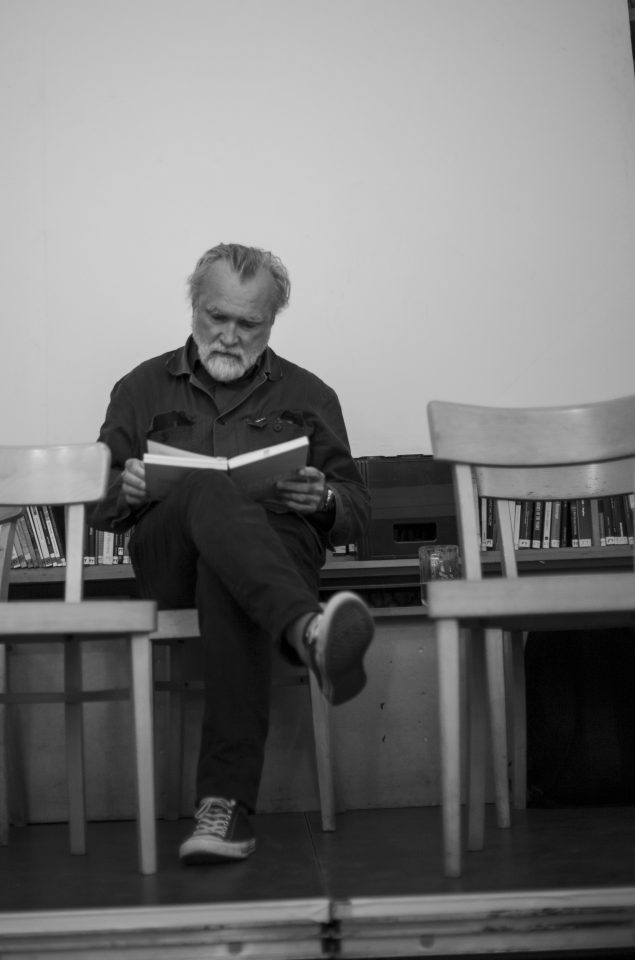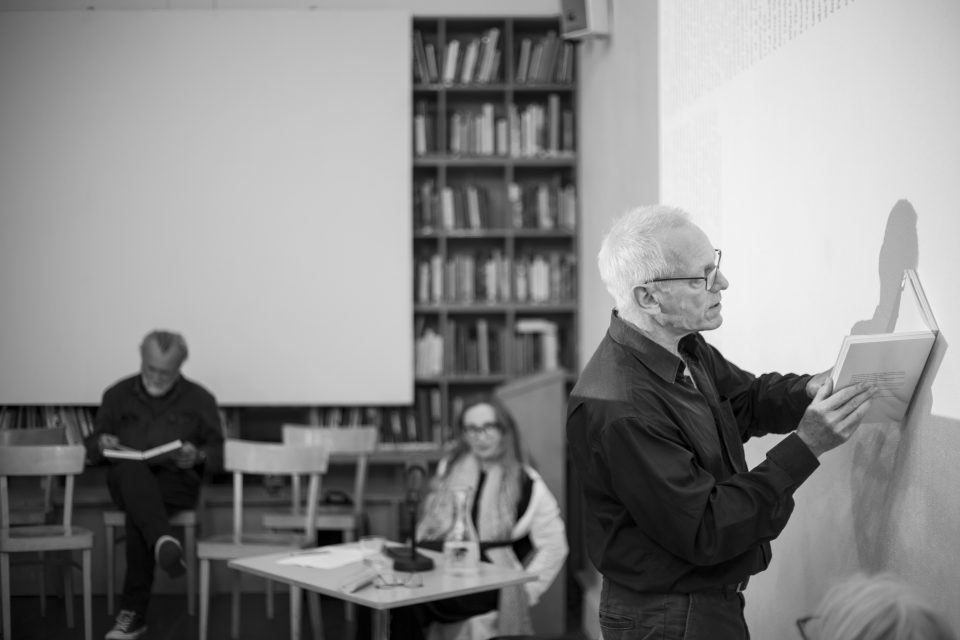VISCERAL FICTION Im_flieger writes hi/stories. 20 years artists for artists // Book presentation & discussion
Do 2.6.2022 // 19.30

Foto: Franzi Kreis
Do 2.6.2022 // 19.30
Depot – Kunst und Diskussion
Breite Gasse 3, 1070 Wien
Admission free / in English and German
With contributions by:
Elke Krasny (cultural theorist, curator, author /Vienna): Towards a Political Philosophy of Self-Curating: Autonomy, Independence, Interdependencies.
Jack Hauser (performer, filmmaker, Vienna) & David Ender (musician, author, performer, translator, Vienna): Jack Hauser & David Ender read out in the visceral.
& Editors: Kilian Jörg (artist, philosopher, Berlin/Vienna), Anita Kaya (artist, curator, Vienna), Johanna Nielson (artist, Vienna), Agnes Schneidewind (artist, Vienna)
Moderation: Charlotta Ruth (artist, teacher, Vienna)
20 years of artists‘ initiative Im_flieger: VISCERAL FICTION is an investigative review and research in the process of inscribing history/stories in, around and with Im_flieger. Im_flieger is a self-organised, rhizomatic platform and a body for dance, performance and transmedia art.
By means of interviews, conversations, images, and theoretical discourses, an activation of the network took place in a one-year research process, which we designed in analogy to a „detective agency“: People, spaces, artistic works, contents, … The past (even if only a fraction) gained attention, appreciation and relevance in the present.
The detectives, authors and conversation partners Robert Dressler, David Ender, Veza Fernández, Jack Hauser, Michael Hirsch, Sabina Holzer, Katrin Hornek, Kilian Jörg, Anita Kaya, Felix Kaya, Elke Krasny, Simon Mayer, Johanna Nielson, Martina Ruhsam, Elisabeth Schäfer, Sylvia Scheidl, Agnes Schneidewind and Sabine Sonnenschein ask about the discursive potential of self-organization, artistic work, its formats, conditions of production, and about the significance of art and artists‘ organizations and spaces as decentralized movements in the cultural-political field and all the relationships that derive from them. But above all: what kind of poetics does the process of this detective investigation require?
Even if we, artists and curators, cannot solve the major social problems into whose abyss we are currently looking with art, we can at least uncover the mechanisms, hierarchies and structures in and with which we work, become aware of them, change them, refuse them, realise others. Museums and theatres – as traditional, ritual spaces and places of assembly in Western society – serve to rehearse the values that are relevant to each society.
What new rituals and places of assembly does our contemporary society need and what new social order is to be rehearsed?
How can artistic and curatorial creation connect with society, the world, in a different way and become effective?
How can artistic and curatorial practice be developed to build a sustainable dialogue between artists and audiences?
How can artistic practices and methods be experienced as an essential part of our social life together?
How can art no longer be received as a closed system, but be recognised in its interactive research and transformation potential, and become relevant to social issues and processes?
How do we work on the community, on the social order?
It’s not about giving answers. It’s time for a break in the space-time continuum, but, … will you ever be the same when you return?
Kilian Jörg, Anita Kaya, Johanna Nielson, Elisabeth Schäfer, Agnes Schneidewind (eds.), VISCERAL FICTION. Im_flieger hi/stories. 20 years artists for artists, edition monochrom, Vienna 2021
20 Jahre Künstler*innen-Initiative Im_flieger: VISCERAL FICTION ist detektivischer Rückblick und Forschung im Prozess des Einschreibens von Geschichte/n in, um und mit Im_flieger. Im_flieger ist eine selbstorganisierte, rhizomatische Plattform wie auch ein Corpus für Tanz, Performance und transmediale Kunst.
Mittels Interviews, Gesprächen, Bildern und theoretischen Diskursen fand in einem einjährigen Forschungsprozess, den wir in Analogie zu einer „Detektei“ gestalteten, eine Aktivierung des Netzwerks statt: Menschen, Räume, künstlerische Arbeiten, Inhalte, … Die Vergangenheit (wenn auch nur ein Bruchteil) fand Beachtung, Wertschätzung und Relevanz in der Gegenwart.
Die „Detektivinnen“, Autorinnen und Gesprächspartnerinnen Robert Dressler, David Ender, Veza Fernández, Jack Hauser, Michael Hirsch, Sabina Holzer, Katrin Hornek, Kilian Jörg, Anita Kaya, Felix Kaya, Elke Krasny, Simon Mayer, Johanna Nielson, Martina Ruhsam, Elisabeth Schäfer, Sylvia Scheidl, Agnes Schneidewind und Sabine Sonnenschein fragen nach dem diskursiven Potential von Selbstorganisation, künstlerischem Arbeiten, dessen Formaten, Produktionsbedingungen und nach dem Stellenwert von Kunst und Künstlerinnen-Organisationen und -Räumen als dezentrale Bewegungen im kulturpolitischen Feld und sich daraus ableitender Beziehungen. Vor allem aber: Welche Poetik erfordert der Prozess dieser detektivischen Nachforschung?
Auch wenn wir, Künstler:innen und Kurator:innen, die großen gesellschaftlichen Probleme, in deren Abgrund wir aktuell schauen, nicht mit Kunst lösen können, können wir zumindest die Mechanismen, Hierarchien und Strukturen in und mit denen wir arbeiten, aufdecken, bewusst machen, verändern, verweigern, andere realisieren. Museen und Theater – als traditionelle, rituelle Räume und Versammlungsorte der westlichen Gesellschaft – dienen dazu, die jeweils gesellschaftlich relevanten Werte einzuüben.
Welche neuen Rituale und Versammlungsorte braucht unsere heutige Gesellschaft und welche neue Gesellschaftsordnung soll eingeübt werden?
Wie kann künstlerisches und kuratorisches Schaffen sich auf eine andere Weise mit der Gesellschaft, der Welt verbinden und wirksam werden?
Wie kann eine künstlerische und kuratorische Praxis entwickelt werden um einen nachhaltigen Dialog zwischen Künstler:innen und Zuschauer:innen aufzubauen?
Wie können künstlerische Praktiken und Methoden als wesentlicher Bestandteil unseres gesellschaftlichen Zusammenlebens erfahrbar gemacht werden?
Wie kann Kunst nicht mehr nur als abgeschlossenes System rezipiert, sondern in ihrem interaktiven Forschungs- und Transformationspotenzial erkannt werden, und für gesellschaftliche Fragen und Prozesse Relevanz erhalten?
Wie arbeiten an der Gemeinschaft, an der gesellschaftlichen Ordnung?
It’s not about giving answers. It’s time for a break in the space time continuum, but, … will you ever be the same, when you return?
Kilian Jörg, Anita Kaya, Johanna Nielson, Elisabeth Schäfer, Agnes Schneidewind (Hg.), VISCERAL FICTION. Im_flieger schreibt Geschichte/n. 20 Jahre Künstler*innen für Künstler*innen, edition monochrom, Wien 2021
Fotos von Franzi Kreis
Fotos von Felix Kaya






















